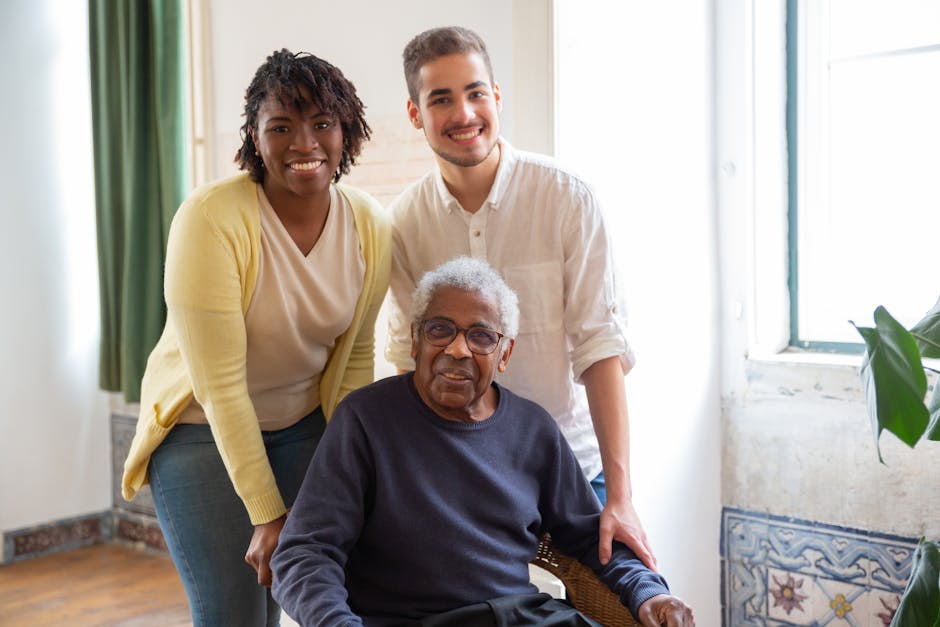Support Groups for Families Affected by Addiction: A Comprehensive Guide
When a loved one struggles with addiction, the impact is far-reaching, affecting not only the individual but also their family members. Families often find themselves grappling with feelings of guilt, shame, confusion, and helplessness as they navigate the complexities of addiction. In such challenging times, support groups can offer a lifeline, providing a safe space for families to share their experiences, receive guidance, and find solace in knowing they are not alone.
In this article, we delve into the world of support groups for families affected by addiction, exploring the various facets of this vital resource. From understanding the role of support groups to debunking common misconceptions, we aim to shed light on the importance of these groups in fostering healing and resilience within families impacted by addiction.
The Role of Support Groups

Support groups play a crucial role in the journey towards recovery for families affected by addiction. These groups provide a platform for individuals to connect with others who are facing similar challenges, offering a sense of community and understanding that can be immensely comforting. By sharing their stories, families can gain insights, learn coping strategies, and build a support network that is instrumental in navigating the complexities of addiction.
One of the key benefits of support groups is the validation and normalization of experiences. Oftentimes, family members of individuals struggling with addiction may feel isolated or stigmatized. Being part of a support group can help alleviate these feelings by providing a non-judgmental space where individuals can express themselves openly and honestly.
Moreover, support groups offer practical guidance and resources to families, equipping them with the tools they need to support their loved ones effectively. From learning about addiction and its impact on relationships to developing healthy boundaries and communication strategies, support groups can empower families to take proactive steps towards healing and recovery.
The Evolution of Support Groups

Support groups for families affected by addiction have evolved significantly over the years, adapting to the changing needs and dynamics of the community. Historically, support groups were primarily focused on providing emotional support and camaraderie to individuals facing similar challenges.
However, with advancements in research and understanding of addiction, support groups have expanded their scope to incorporate evidence-based practices and interventions. Today, many support groups offer educational resources, expert-led workshops, and specialized programs tailored to the needs of families dealing with addiction.
Furthermore, the rise of technology has revolutionized the way support groups operate, with online platforms and virtual meetings becoming increasingly popular. This shift towards virtual support groups has made it more accessible for families to connect with others, regardless of their geographical location or time constraints.
Types of Support Groups

Support groups for families affected by addiction come in various forms, each offering a unique set of benefits and resources. Some of the most common types of support groups include:
1. Al-Anon and Nar-Anon

Al-Anon and Nar-Anon are two of the most well-known support groups for families of individuals struggling with alcoholism and drug addiction, respectively. These groups follow a 12-step program and provide a supportive environment for family members to share their experiences, gain insights, and receive guidance on coping with addiction.
2. SMART Recovery Family & Friends
SMART Recovery Family & Friends is a science-based support group that offers tools and strategies to help family members of individuals with addiction. The program focuses on empowering families to develop healthy coping mechanisms, set boundaries, and communicate effectively with their loved ones.
3. Celebrate Recovery
Celebrate Recovery is a faith-based support group that incorporates spiritual principles into the recovery process. This group provides a safe space for individuals to explore their faith, find support within a community of like-minded individuals, and work towards healing and recovery.
These are just a few examples of the diverse range of support groups available to families affected by addiction. Each group has its unique approach and philosophy, allowing individuals to find a support network that resonates with their beliefs and values.
Benefits of Joining a Support Group
Joining a support group for families affected by addiction can have a profound impact on individuals’ emotional well-being and resilience. Some of the key benefits of participating in a support group include:
1. Emotional Support
Support groups provide a safe space for individuals to express their emotions, share their struggles, and receive empathy and understanding from others. This emotional support can be incredibly validating and comforting, helping individuals feel less alone in their journey.
2. Coping Strategies
Support groups offer practical guidance and coping strategies to help families navigate the challenges of addiction. By learning from others’ experiences and insights, individuals can develop healthy coping mechanisms and resilience in the face of adversity.
3. Education and Resources
Many support groups provide educational resources, workshops, and expert-led sessions to help families understand addiction better and equip them with the knowledge and tools they need to support their loved ones effectively. This information can be empowering and transformative for families seeking to make positive changes in their lives.
4. Community and Connection
Support groups foster a sense of community and connection among individuals who are going through similar experiences. Building relationships with others in the group can provide a sense of belonging and camaraderie that is essential for emotional well-being and resilience.
Challenges Faced by Families
While support groups offer a myriad of benefits to families affected by addiction, they also come with their set of challenges. Some of the common challenges faced by families in support groups include:
1. Stigma and Shame
Despite the progress made in reducing the stigma associated with addiction, many families still grapple with feelings of shame and embarrassment when seeking help. Overcoming these negative emotions and opening up about their struggles can be a significant barrier for individuals considering joining a support group.
2. Lack of Accessibility
For some families, accessing support groups may be challenging due to geographical constraints, time commitments, or financial limitations. Limited availability of in-person meetings or lack of virtual options can prevent individuals from accessing the support they need to cope with addiction.
3. Resistance to Change
Resistance to change is a common hurdle faced by families in support groups, especially when it comes to implementing new coping strategies or setting boundaries with their loved ones. Overcoming resistance and embracing change can be a gradual and challenging process for many individuals.
4. Relapse and Setbacks
Addiction recovery is a complex and nonlinear process, often marked by relapses and setbacks. Families in support groups may find it difficult to cope with the uncertainty and unpredictability of their loved one’s journey towards recovery, leading to feelings of frustration and helplessness.
Common Misconceptions
Despite the growing awareness of addiction and the importance of support groups, there are still many misconceptions surrounding families affected by addiction. Some of the common misconceptions include:
1. Enabling Behavior
One of the prevalent misconceptions is that family members of individuals with addiction are solely responsible for enabling their loved one’s behavior. While enabling behaviors do exist, it is essential to recognize that addiction is a complex disease that requires a comprehensive approach to treatment and recovery.
2. Lack of Support
Another misconception is that families of individuals struggling with addiction do not need support themselves. In reality, families play a crucial role in the recovery process and often require support, guidance, and resources to cope with the challenges they face.
3. Blame and Judgment
There is a tendency to blame and judge families of individuals with addiction, assuming that they are somehow responsible for their loved one’s struggles. It is important to shift the focus from blame to understanding and compassion, recognizing that addiction is a complex issue that affects individuals and families alike.
FAQs
1. Can anyone join a support group for families affected by addiction?
Yes, most support groups welcome individuals who have a loved one struggling with addiction. Whether you are a parent, spouse, sibling, or friend, you are likely to find a support group that meets your needs and provides the guidance and resources you seek.
2. Are support groups confidential?
Support groups prioritize confidentiality and create a safe space for individuals to share their experiences without fear of judgment or disclosure. It is essential to respect the privacy of others in the group and maintain confidentiality to foster trust and openness.
3. How can I find a support group in my area?
You can start by researching online or contacting local addiction treatment centers or mental health organizations for information on support groups in your area. Many support groups also offer virtual meetings, making it easier for individuals to connect with others regardless of their location.
Conclusion
To wrap things up, support groups for families affected by addiction play a vital role in providing emotional support, guidance, and resources to individuals grappling with the impact of addiction on their loved ones. By joining a support group, families can gain insights, develop coping strategies, and build a sense of community that is instrumental in fostering healing and resilience.
As we continue to break down the barriers and misconceptions surrounding addiction, it is essential to recognize the importance of support groups in empowering families to navigate the complexities of addiction with compassion and understanding. By coming together, sharing their experiences, and supporting one another, families can find hope, strength, and solace in knowing they are not alone in their journey towards healing.




